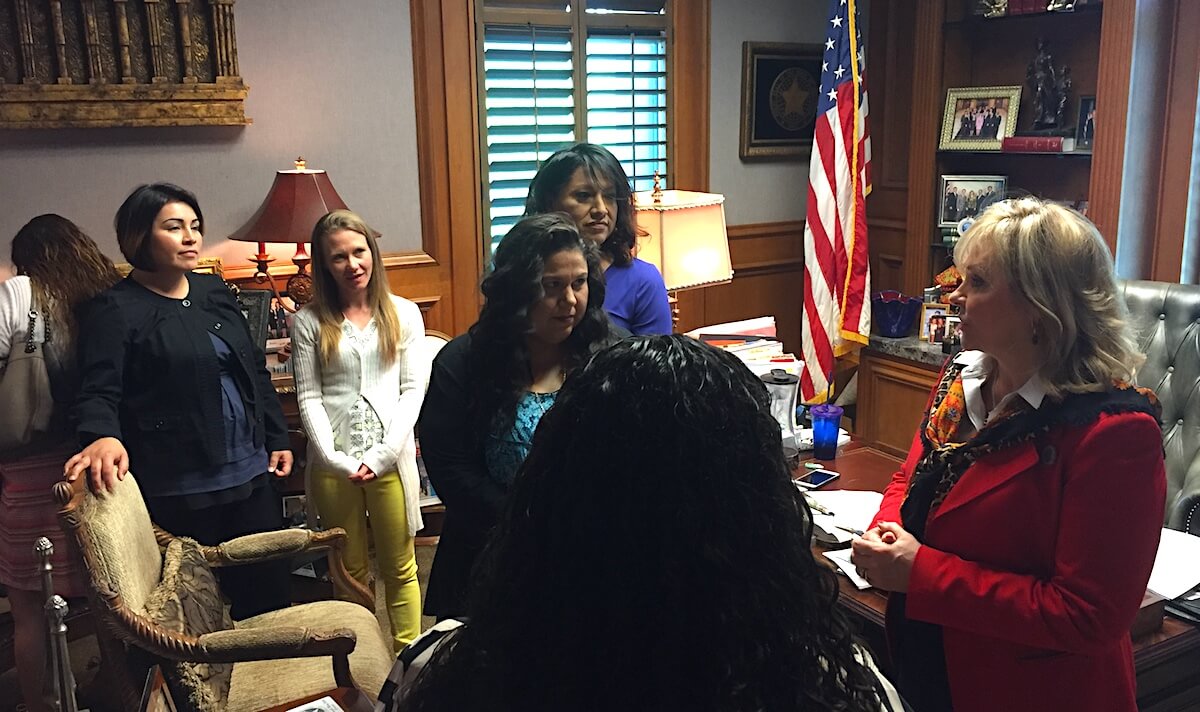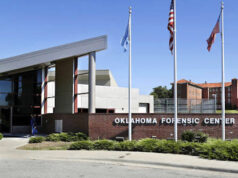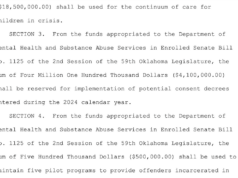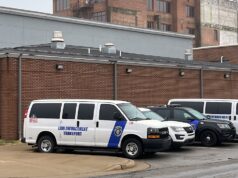TULSA, Oklahoma — When Ashley Billings was using drugs, which she did for nearly half her life, she was always making promises to her young boys that may or may not have actually happened. Now, 14 months sober, a 33-year-old Billings is on a path to recovery.
“I wanted to change my life and better myself for my kids,” she said. “And so I came here.”
Billings is one of six women working at Take 2: A Resonance Café in Tulsa. The restaurant employs formerly incarcerated women and helps them get back on their feet to re-enter society.
“Using or drinking again is not an option,” Billings said. “I can say, honestly, I have been around [former vices] since I’ve been out and I’ve been, like, absolutely no.”
Getting high, she noted, is as simple as going down to the bus station, where drugs and alcohol are in great supply. But it’s not what Billings focuses on now.
“It’s all about how much you want it and how much you want to change,” she said. “I’m never going to put myself through that or my kids again. We’re happy now. And I want to help people.”
Billings went to prison for less than a year after failing to pay fines related to drug possession charges. When she was in jail before being sentenced to prison, she thought she would be referred to drug court, she said.
“I wasn’t quite to the point then where I was never going to use again,” she said. “And then whenever I was sentenced to my term in prison, that was the wringer for me because I had been away from my kids for at least six months by then, and knowing that when I went to prison I wasn’t going to see them. I didn’t want them to come see me in prison.”
Billings was sentenced to six years but served only eight months in prison and six months in county jail, she said. She was released in August 2017 and immediately came to Tulsa and began working at Take 2 Café.
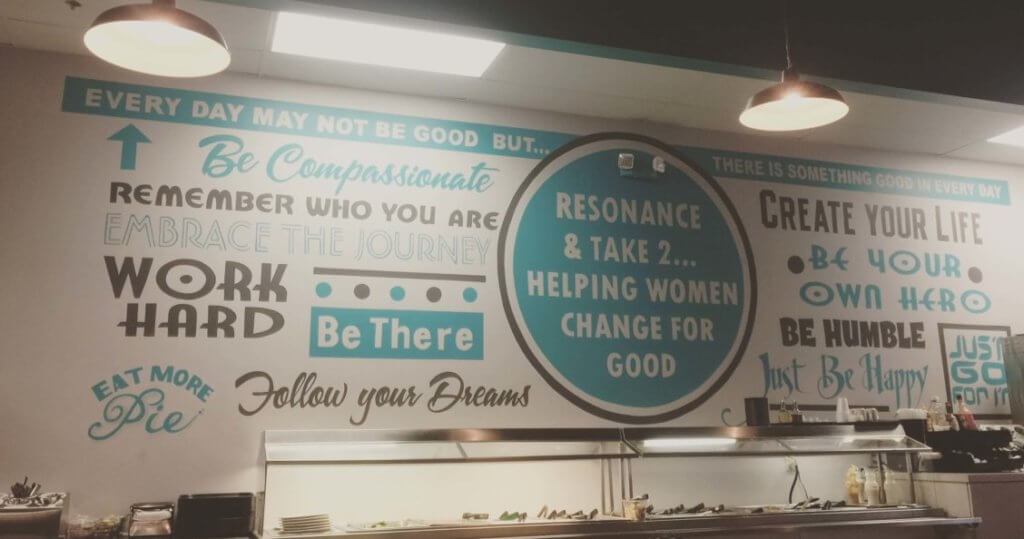
Resonance Center: ‘A structured environment’
Billings is one of the success stories at Take 2, said Deidra Kirtley, executive director of Resonance Center for Women, which operates the café. Founded in 1977, Resonance started as a listening center for women but has evolved over time.
“Over the years, our community has changed and women have grown,” Kirtley said. Now, the organization focuses on helping women who are involved in the criminal justice system.
“When women get stuck in the criminal justice system, it’s really hard for them to get out,” Kirtley said.
To that end, Resonance offers two main tracks for women: substance abuse treatment in lieu of incarceration and re-entry services for women incarcerated at three locations.
In the substance abuse treatment track, women learn how to get and live sober in their daily environment.
“They come to us three or four of five times a week for therapy, but then they go back to their own homes and live and deal with their recovery in their everyday situation,” Kirtley said.
Such a program offers a supportive environment in which women learn how best to deal with the common obstacles that come at them.
The women who received help once they left prison as convicted felons often found that they were having trouble finding jobs. Enter Take 2, a transitional social venture that helps the women gain needed employment, learn skills and save money for future deposits, cars, rent and more.
“There’s a lot going on when someone is released,” Kirtley said. “Pretend you’re in prison and you have severed every family tie. You don’t have any money. You don’t have any place to live. You probably owe a couple thousand (dollars) in fines. All that stuff. It’s really easy for a lot of women to just go right back. This is more of a structured environment.”
‘We want them to be self-sufficient’
The women at Take 2 spend six months doing a variety of jobs at the café. They live upstairs in 2,500-square-foot, three-bedroom, two-bath apartment that they pay rent for every month as a way to learn how to budget their money.
RELATED
State contract to grow ‘life-changing’ Women in Recovery program by William W. Savage III
“They just have to know how to save. We’re trying to prepare them to be successful when they leave here,” Kirtley said.
The women are paid $9 per hour for their work at Take 2. By the time many of the women leave, they have saved a couple thousand dollars, more money than many of them have ever had in their lives, so it’s important they learn how to budget and best use the money.
“We want them to be self-sufficient and to be able leave here without them relying on us,” she said.
Once they leave, some of the women stay in the food business. Others look to fields such as manufacturing.
In 2017, Resonance saw more than 400 women come through its door. About 200 to 250 women receive treatment from the center each year, Kirtley said. More than 500 women were helped through Resonance’s re-entry services at three prisons and jails in 2017.
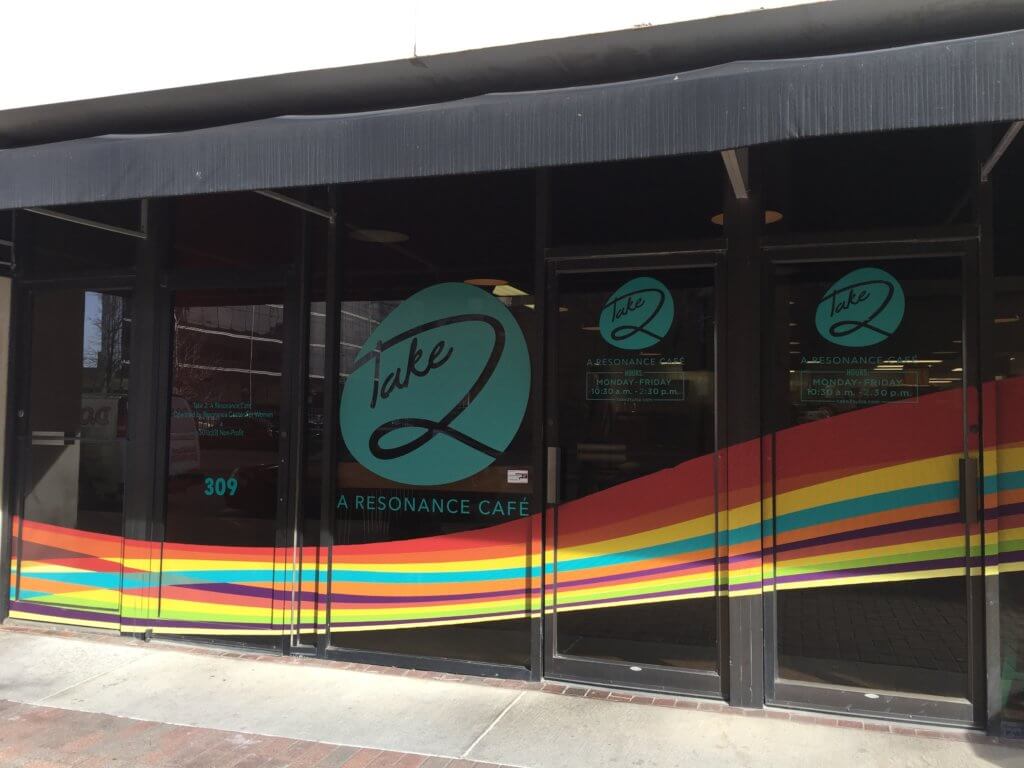
‘I’m doing it right’ at Take 2 Café
Eating lunch on a recent Friday at Take 2 Café, customer Debbie Rooney of Tulsa said she appreciates that the social enterprise helps women and the community. A repeat customer, Rooney said the food is delicious, especially the sandwiches. The restaurant features Jeb Perry Prime Rib Au Jus, Club, Reuben and BLT sandwiches. Salads, soups, spuds and a variety of pies are also available.
As for Billings, for the first time in a long time, she said she now has dreams for herself. She wants to go to school and become an accountant. First, she plans to start waitressing once she leaves Take 2.
She chairs two Alcoholics Anonymous meetings a week currently, and goes to meetings five or six times per week. Sometimes her kids will even go with her to meetings, she said.
“I’m doing it right,” she said. “I’ve never lived in Tulsa before. It’s all new to me, but I wanted a big change.”









